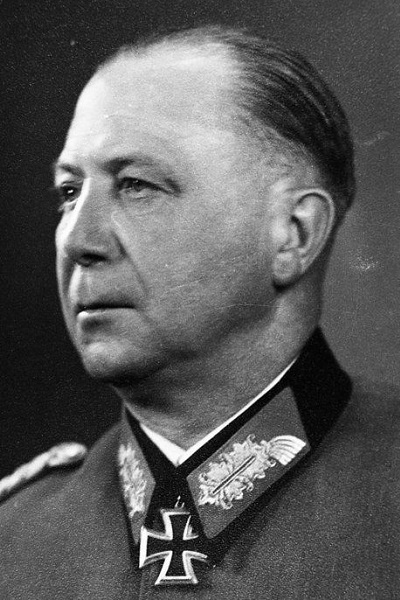Wüstenhagen, Albrecht
- Date of birth:
- October 19th, 1892 (Klostermannsfeld/Saxony, Germany)
- Date of death:
- April 26th, 1944 (Southwest of Witebsk, Soviet Union)
- Nationality:
- German
Biography
Do you have more information about this person? Inform us!
- Period:
- Second World War (1939-1945)
- Rank:
- Oberstleutnant
- Unit:
- Artillerie-Regiment 129 / 129.Infanterie-Division
- Awarded on:
- March 7th, 1942
- Period:
- Second World War (1939-1945)
- Rank:
- Oberst (Colonel)
- Unit:
- Kommandeur Artillerie-Regiment 129
- Awarded on:
- December 2nd, 1942
“During the weeks-long defensive battle near Rzhev Oberst Wüstenhagen has showed demonstrated heroic bravery on countless occasions. Through his actions in the foremost line, as well as the outstanding conduct of his Regiment’s artillery fire, he has had a decisive role in ensuring the holding of the Division’s defensive front against a tenfold superior enemy.
In particular, his incredible leadership abilities and ruthless employment of his person were responsible for preventing an enemy breakthrough in the direction of Rzhev on the 24.08.1942.
Following a three-hour artillery barrage the enemy’s 31st Army attacked with 5 rifle divisions and 2 tank brigades. They broke through a part of the frontline and began a steady assault against Bertinowo, a decisive piece of high ground and the lynchpin of the flank position of the 129. Infanterie-Division southeast of Rzhev (see sketch).
In this major crisis Oberst Wüstenhagen personally intervened in the foremost line. On his own initiative he deployed the 1., 2., 4. and 5 Batterien for close combat against enemy tanks and organized a new line of resistance. Here he rallied straggling infantry elements, and by his unstoppable boldness and skillful leadership the enemy attack was brought to a halt. Where Oberst Wüstenhagen appeared the infantry were able to gather new courage despite the overwhelming enemy artillery fire (enemy batteries of all calibers were being concentrated on this point). In the face of about 20 Katyusha rocket launchers, tank fire from about 30-40 enemy tanks and the fury of all infantry weapons, the friendly infantry were able to once again take up the defensive battle against the oncoming masses of Bolsheviks.
Oberst Wüstenhagen was the soul of resistance (in the literal sense of the word) among the thin friendly ranks.
By the evening of the day hundreds of dead Russians littered the battlefield. 10 tanks were destroyed by Wüstenhagen’s Batterien. The coordinated enemy attack by 5 rifle divisions and 2 tank brigades had been smashed.
On this day the Artillerie-Regiment lost 6 officers plus 75 NCOs and men, as well as 6 light leFH 18 howitzers through enemy action.
The victor of this day, Oberst Wüstenhagen, had prevented a strong Russian breakthrough aimed at the flank and rear of Rzhev as well as the interdiction of the railway line Saytschewka-Rzhev (vital for the XXVII. and VI. Armee-Korps). Details of the deed by Oberst Wüstenhagen have only now come to light following the cessation of hostilities due to the loss of many officers from his Regiment.”
- Period:
- First World War (1914-1918)
- Period:
- First World War (1914-1918)
- Period:
- First World War (1914-1918)
- Period:
- Second World War (1939-1945)
- Period:
- Second World War (1939-1945)
Sources
- Photo 1: Igor Poul
- - Die Ordensträger der Deutschen Wehrmacht (CD), VMD-Verlag GmbH, Osnabrück, 2002
- Fellgiebel W.P., Elite of the Third Reich, The recipients of the Knight's Cross of the Iron Cross 1939-1945: A Reference, Helion & Company Limited, Solihull, 2003, ISBN 1-874622-46-9
- Scheibert, H., Die Träger des Deutschen Kreuzes in Gold (Das Heer), Podzun-Pallas Verlag, Friedberg, Germany, 1983
- Die Träger des Ritterkreuzes des Eisernen Kreuzes 1939-1945
- Microfilm Publication A3356. US National Archives.









